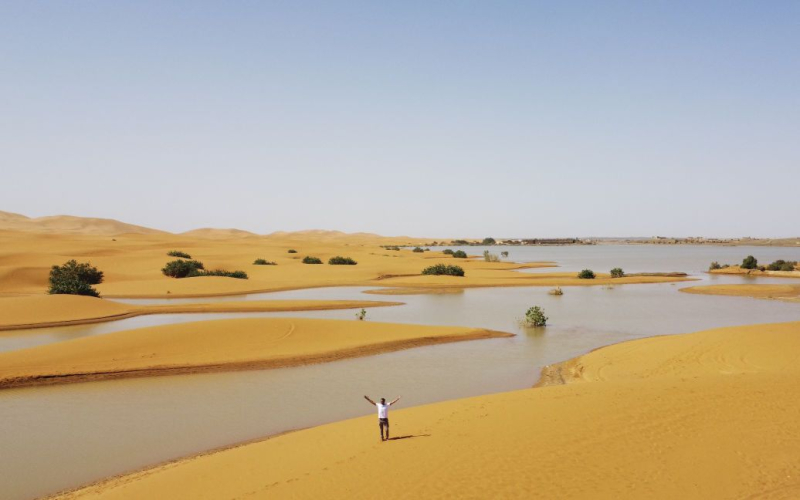
Locals say the desert hasn't seen such heavy rainfall for half a century.
The heavy rains left blue lagoons of water among the palm trees and sand dunes of the Sahara desert, feeding some of its driest regions with more water than they have seen in decades.
APnews reports.
Morocco's southeastern desert is one of the driest places in the world, with little rain in late summer.
The Moroccan government said rainfall in September exceeded the annual average for two days in several areas that receive less than 250 millimeters (10 inches) of rain a year, including Tata, one of the hardest-hit areas. In Tagounit, a village about 450 kilometers south of the capital Rabat, more than 100 millimeters were recorded in 24 hours.
Heavy rainfall left lakes with bizarre shapes.
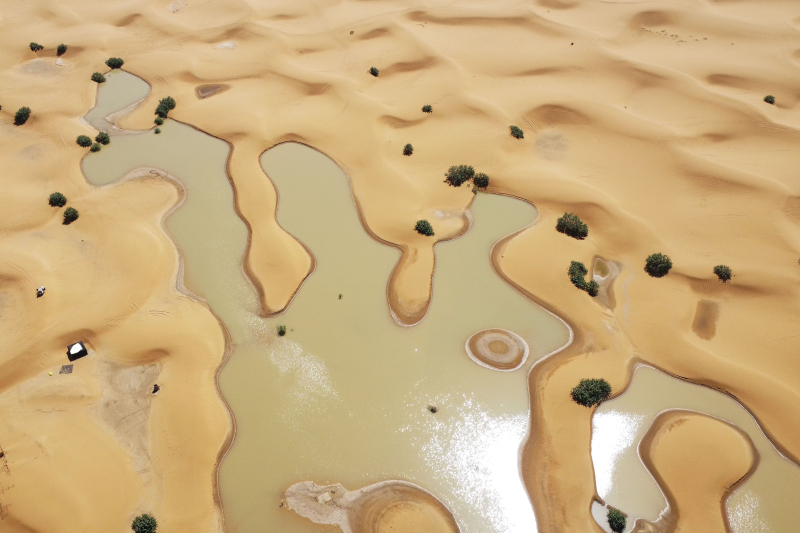
NASA satellites showed how water comes to fill Lake Iriki, a famous lake bed between Zagora and Papa, dry for 50 years.
In desert towns visited by tourists, SUVs drove through puddles, and residents looked at the place with awe.
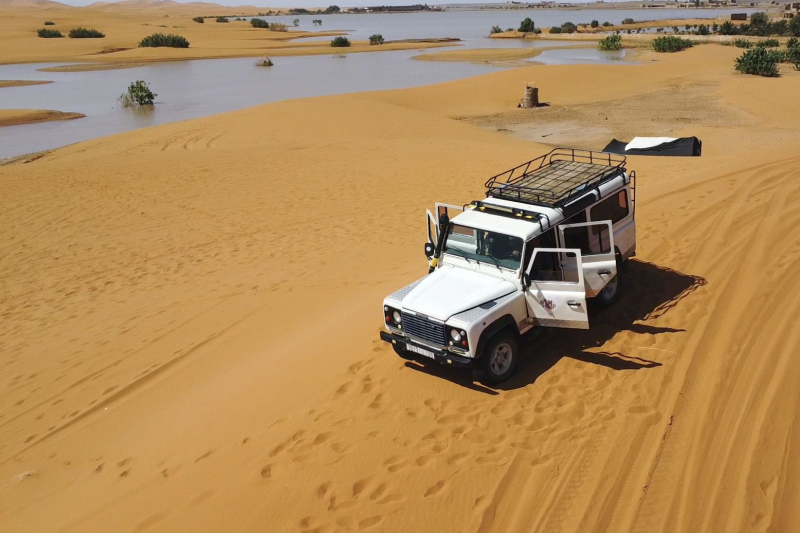
“It's been 30 to 50 years since we've had this much rain in such a short period of time,” said Houcine Youabeb of Morocco's Directorate General of Meteorology.
Such rains, called extratropical storms by meteorologists, can change the course of the region's weather in the coming months and years because the air holds more moisture, causing more evaporation and more storms, Youabeb said.
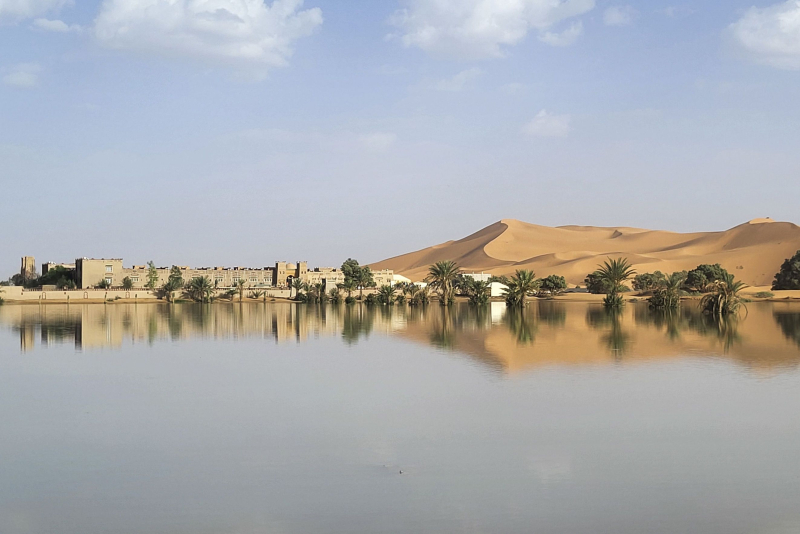
Six years of drought have caused problems for much of Morocco, forcing towns and villages to manage water wisely.
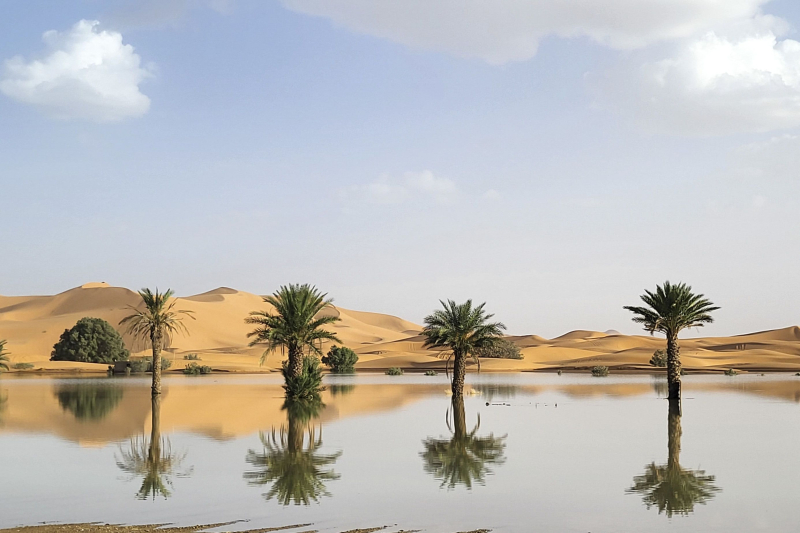
Heavy rainfall is likely to help fill vast underground aquifers beneath the desert that are used to supply water to desert communities. The region's reservoirs filled at a record pace throughout September.
However, it is unclear to what extent the September rains will help ease the drought.
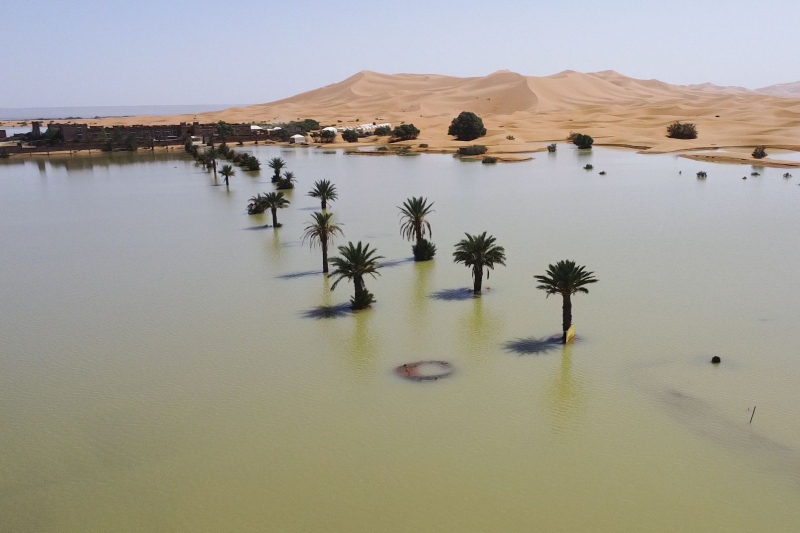
Water flowing through sands and oases has killed more than 20 people in Morocco and Algeria and damaged farmers' crops, prompting the government to allocate emergency aid funds.
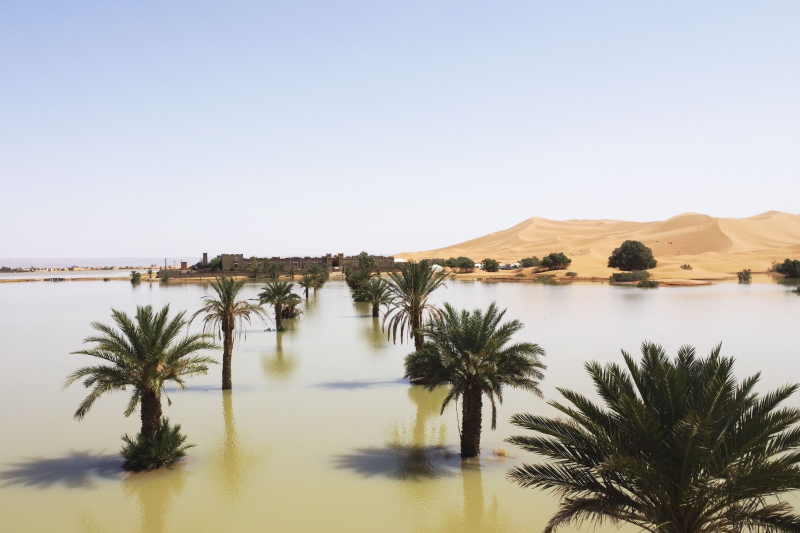
We remind you that meteorologist, climatologist, specialist in climate change and long-term weather forecasting Vazira Martazinova explained why Ukraine is covered with sand from the Sahara.
Similar topics:
More news

